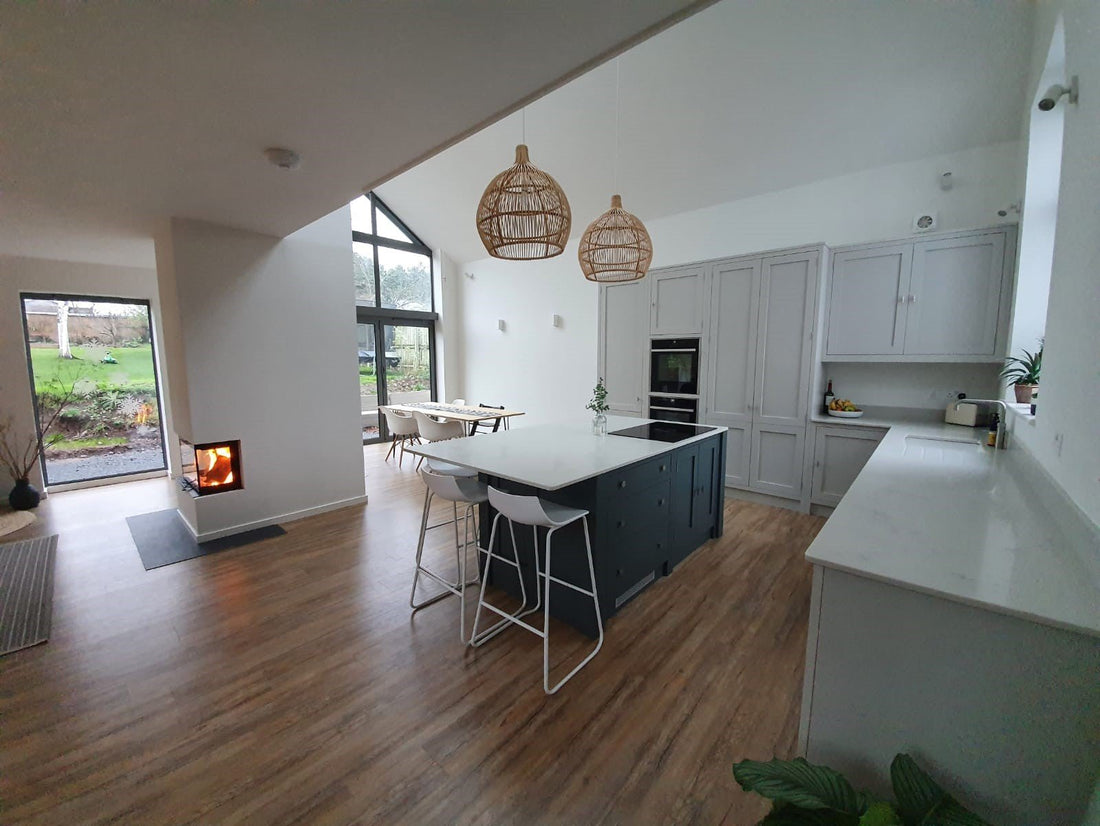
From Concept to Reality: The Journey of a Handmade Kitchen
Share
Creating a handmade kitchen is a transformative journey, blending artistry, craftsmanship, and personalized design. Unlike mass-produced kitchens, a handmade kitchen is a labour of love, reflecting the homeowner’s unique tastes and needs. In this blog, we'll take you through the step-by-step process of bringing a handmade kitchen from initial concept to stunning completion.
Step 1: Initial Consultation and Concept Development
The journey begins with a detailed consultation. This initial meeting sets the foundation for the entire project.
Key Elements:
- Understanding Needs: The craftsman and homeowner discuss lifestyle, cooking habits, and aesthetic preferences.
- Inspirational Ideas: Homeowners share ideas, inspirations, and must-haves, often with reference images, to help the designer understand their vision.
- Space Assessment: Detailed measurements and an evaluation of the kitchen space are conducted to understand its potential and limitations.
Outcome:
- A clear understanding of the homeowner's needs and a preliminary concept for the kitchen design.
Step 2: Design and Planning
With the concept in mind, the design phase begins. This stage is crucial for translating ideas into a workable plan.
Key Elements:
- Detailed Drawings: The designer creates detailed sketches and 3D renderings to visualize the layout, cabinetry, and overall aesthetic.
- Material Selection: Choices for wood, countertops, hardware, and finishes are made, ensuring they align with the desired style and functionality.
- Budgeting and Timeline: A budget and timeline are established, outlining the costs and phases of the project.
Outcome:
- A comprehensive design plan, including layout drawings, material selections, and a project timeline.
Step 3: Crafting the Components
With the design approved, the craftsman begins the meticulous process of creating the kitchen components.
Key Elements:
- Selecting Materials: Premium materials are chosen for their quality and suitability for the design.
- Handcrafting Cabinets: Skilled artisans cut, join, and assemble the cabinets. Techniques like dovetail joints and mortise-and-tenon are often used for durability.
- Custom Details: Unique features, such as carved details or bespoke storage solutions, are crafted to the homeowner’s specifications.
Outcome:
- Beautifully crafted kitchen components, ready for assembly and installation.
Step 4: Finishing Touches
Once the components are crafted, they undergo finishing to achieve the desired look and protect the materials.
Key Elements:
- Sanding and Smoothing: All surfaces are meticulously sanded to ensure a smooth finish.
- Applying Finishes: Stains, paints, or varnishes are applied, enhancing the wood’s natural beauty or achieving the desired colour.
- Hardware Installation: Handles, knobs, and other hardware are installed, chosen to complement the overall design.
Outcome:
- Fully finished kitchen components, ready for delivery and installation.
Step 5: On-Site Assembly and Installation
With the components complete, the next step is to assemble and install them in the homeowner’s kitchen space.
Key Elements:
- Site Preparation: The existing kitchen is removed, and the space is prepared for the new installation.
- Cabinet Installation: Cabinets are carefully installed, ensuring perfect alignment and secure attachment.
- Countertops and Appliances: Countertops are fitted, and appliances are installed and connected.
- Final Adjustments: Doors, drawers, and hardware are adjusted to ensure smooth operation and a flawless finish.
Outcome:
- A fully installed kitchen, meticulously assembled and ready for use.
Step 6: Final Inspection and Handover
The final stage involves a thorough inspection and the official handover of the new kitchen.
Key Elements:
- Quality Check: Every detail is inspected to ensure it meets the high standards of craftsmanship and design.
- Homeowner Walkthrough: The craftsman walks the homeowner through the kitchen, explaining features and care instructions.
- Feedback and Adjustments: Any final tweaks or adjustments are made based on the homeowner’s feedback.
Outcome:
- A stunning, handmade kitchen, perfectly tailored to the homeowner’s needs and ready to become the heart of the home.
In Summary
The journey from concept to reality in creating a handmade kitchen is a detailed and rewarding process. It involves collaboration, meticulous craftsmanship, and a deep understanding of the homeowner’s vision. The result is a kitchen that is not only functional and beautiful but also a unique expression of the homeowner’s style and needs. Embracing this journey means investing in a space that will bring joy and value for years to come.
